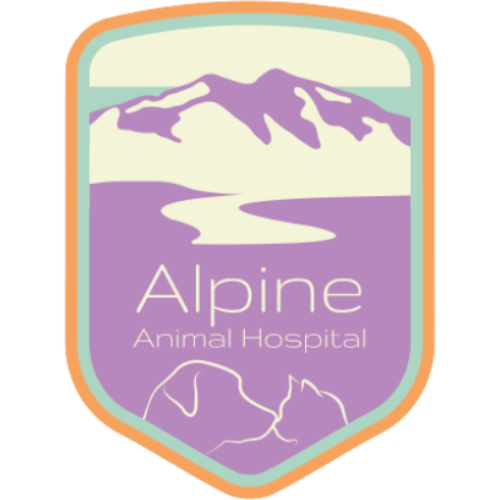Surgical and Anesthetic Procedure Information
BOOK APPOINTMENTPREPARATION BEFORE THE PROCEDURE
When procedures are planned and scheduled ahead of time, we begin to prepare your pet before they are admitted into the hospital. We send home a pre-visit pharmaceutical (PVP) that you will administer the night before the appointment and again in the morning before you bring your pet in for admission to the hospital. This helps reduce any potential anxiety and stress and results in a smoother visit to the hospital and a more fluid anesthetic experience for your pet. You will arrive at the hospital at your scheduled admission time, a nurse will weigh your pet, bring you and your pet into an exam room to ask some questions about your pet, have you sign a few forms, confirm contact information for the day and answer any questions you may have before you leave your pet with us for the day. Once your pet is in recovery you will receive a communication from a team member with an update on your pet’s condition and we will let you know when they will be ready for discharge from the hospital. At discharge a team member will go over medications and post care instructions. Now it is your turn to take over in facilitating your pet’s recovery.
POST PROCEDURE CARE AND INFORMATION
Animals are individuals, just like us humans, and individual pets may recover differently. Some pets don’t experience any complications and others may have a difficult time getting back to normal. You will be sent home with written discharge instructions regarding recommended home care but please reach out with any questions or concerns as you aid your pet during their convalescence. Please click the button below that best corresponds to your pet’s scheduled procedure.
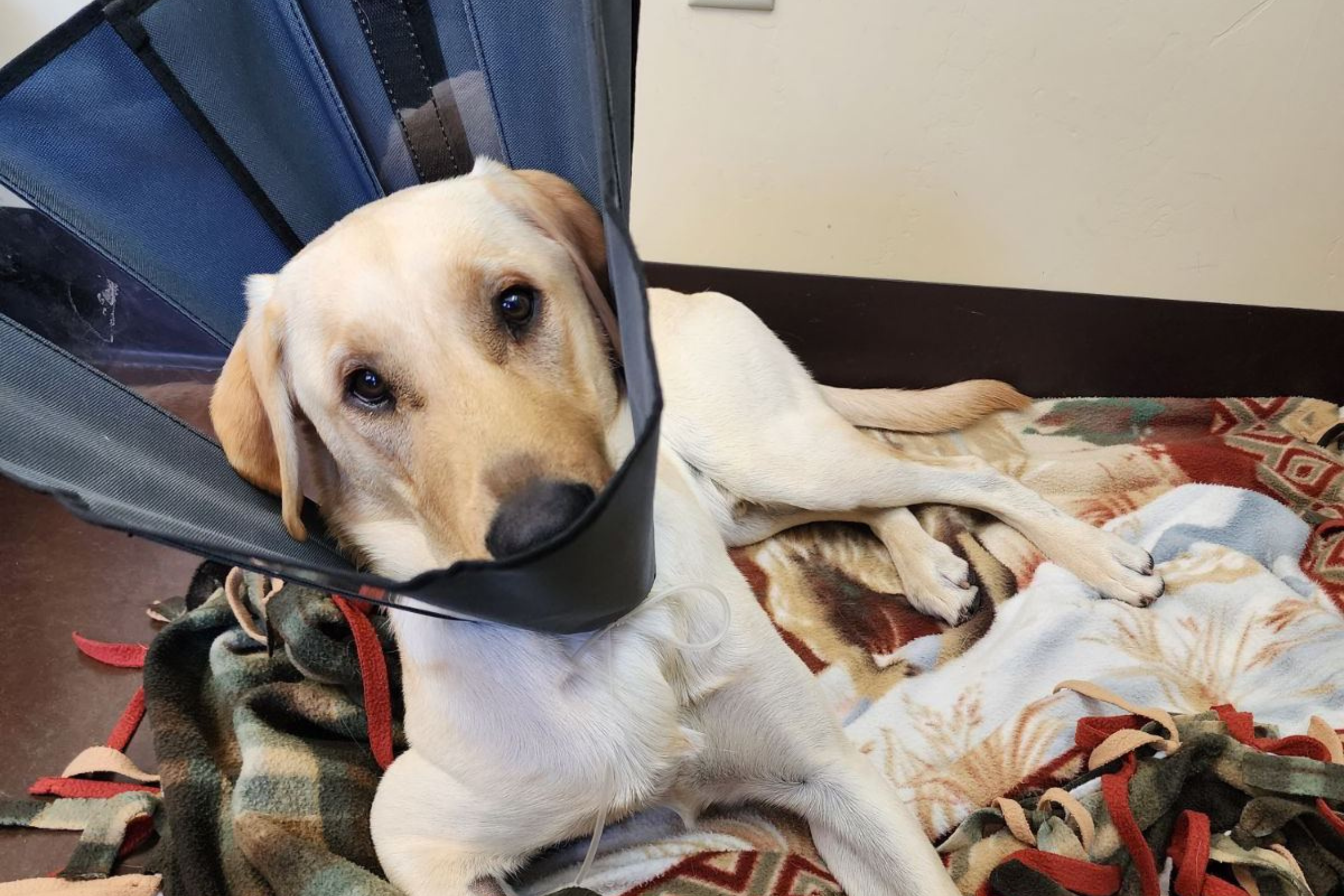
Spaying/Neutering
Generally, there are few complications following this operation but there are still things you must do for your pet during this recovery period.1. Pain control is very important. Your pet will receive pain medication at the hospital, and it is your job to continue pain medication at home. Give medication as instructed; it is easier to keep pain under control than to get it under control if you miss a dose.
1. Exercise restriction for 14 days following surgery. This is to ensure that your pet has the best possible opportunity to heal post-surgery without complications. Too much activity can cause the body to have suture reactions, puts strain on sutures/incision and possibly lead to infection. This means no swimming (or bathing), no big hikes (shorter leashed walks only) and you may need to keep your pet from excessive jumping up or down. Kitties that spend time outside should be kept inside during this recovery period. If your pet is high energy and you know you are going to have challenges keeping them quiet, we will happily send home some medications to help.
2. Have a quiet, warm and comfortable place ready for them to recover. Expect them to be tired and quiet for 24 hours; this is actually preferable as calm, quiet pets will heal faster. If you know your pet is “sensitive” and may take longer to recover you may want to consider taking a day or two off work or have someone around to monitor them. Keep cats inside for at least 24 hours.
3. If your pet doesn’t want to eat once they get home from the hospital that is OK. They should be drinking water and want to eat the next day.
4. Animals are different from humans in that they may chew at sutures or surgical incisions. They don’t understand what can happen and why they shouldn’t do that. This is where the cone of shame comes in. Love it, use it and it will aid in quick healing and prevent complications. Pets do not love e-collars but they usually get used to them. Only take the collar off when you can closely watch them. DO NOT take it off at night! Ask us about the different types of collars we carry in the hospital so you can make the best choice for you and your pet.
5. A mild cough is also normal following anesthesia; this is due to irritation from the endotracheal (breathing) tube used to deliver oxygen and gas anesthetic, as well as protect the airway, during the procedure. This is usually a dry, nonproductive cough that should decrease over time and dissipate within 3-4 days. If, however, a cough does not resolve within 3-4 days, is increasing in frequency or severity, or if it begins to cause any difficulty breathing, this is not normal and your pet should be examined as soon as possible to determine any other issue which could be occurring
6. Be aware, male dogs are still capable of breeding for 2-3 weeks after neuter surgery. Please keep them separated from intact females during this time to avoid unwanted litters. More serious complications or side effects may occur post procedure that require a phone call or a recheck appointment. If you notice any of these signs, please contact us immediately 970-963-2371 or visit Valley Emergency Pet Care if it is after hours.
– Extreme lethargy or listlessness (especially after the first 24 hours)
– Excessive redness or irritation around the suture line
– Swelling or a lump around the incision site
– Discharge from the site
– Vomiting, diarrhea, inappetence or blood in the stool
– Broken sutures or odor from the wound
– Urinary incontinence (leaking of urine)
– No stools for more than 2 days after coming home
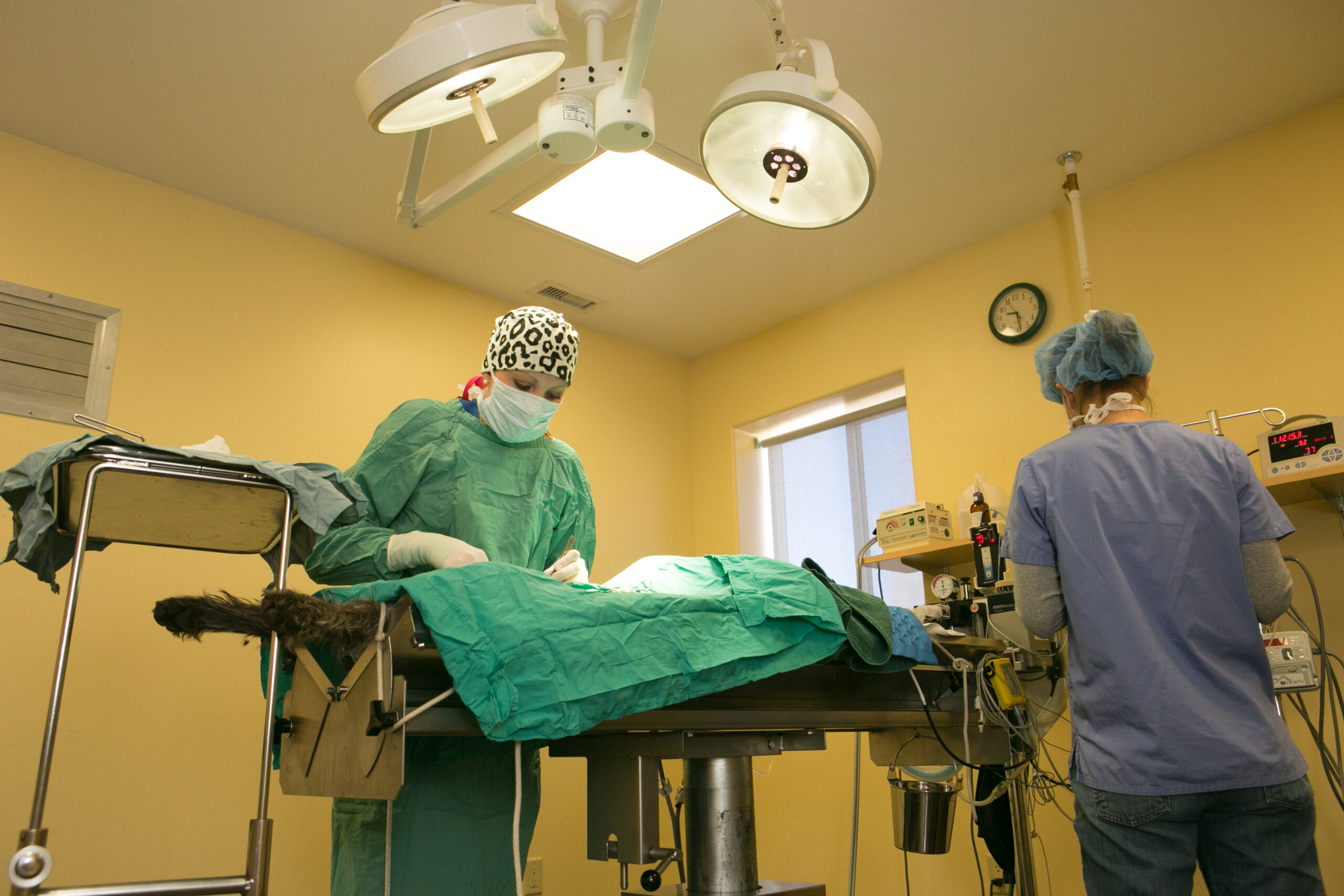
General Surgery
The level of recovery from non-elective surgeries varies with the procedure itself. Your pet may only require a day or so to recover from the removal of a small mass. Whereas the removal oflarge mass or multiple masses will take more time. Mayjor surgeries, such as a splenectomy (removal of the spleen) may take a week or possibly a few days in the hospital or emergency clinic. Orthopedic surgeries also require extensive recover times and additional rehabilitation efforts over a few months following the procedure.
Other factors that affect the duration of recovery include your pets age, body condition, and their overall health. For pets that are older or suffer from disease or conditions (like Diabetes, heart disease, etc) we may recommend that your pet spend the night after the surgery at the emergency clinic so that they can receive ongoing supportive care and monitoring.
There are basic aspects of your pet’s comfort and environment that should be a part of the recovery plan for your pet regardless of the surgical procedure they experienced.
1. Exercise restriction for 14 days following surgery. This is to ensure that your pet has the best possible opportunity to heal post-surgery without complications. Too much activity can cause the body to have suture reactions, puts strain on sutures/incision and possibly lead to infection. This means no swimming (or bathing), no big hikes (shorter leashed walks only) and you may need to keep your pet from excessive jumping up or down. Kitties that spend time outside should be kept inside during this recovery period. If your pet is high energy and you know you are going to have challenges keeping them quiet, we will happily send home some medications to help.
2. Pain control is very important. Your pet will receive pain medication at the hospital, and it is your job to continue pain medication at home. Give medication as instructed; it is easier to keep pain under control than to get it under control if you miss a dose.
3. Medications: all medications are prescribed with your pet’s health and comfort in mind. Please give all medications as directed.
4. Have a quiet, warm and comfortable place ready for them to recover. Expect them to be tired and quiet for 24 hours; this is actually preferable as calm, quiet pets will heal faster. If you know your pet is “sensitive” and may take a while to recover you may want to consider taking a day or two off work or have someone around to monitor them. Keep cats inside for at least 24 hours.
5. If your pet doesn’t want to eat once they get home from the hospital that is OK. They should be drinking water and want to eat the next day.
6. Animals are different from humans in that they may chew at sutures or surgical incisions. They don’t understand what can happen and why they shouldn’t do that. This is where the cone of shame comes in. Love it, use it and it will aid in quick healing. Pets do not love e-collars but they typically get used to them. Only take the collar off when you can closely watch them. DO NOT take it off at night! Ask us about the different types of collars we carry in the hospital so you can make the best choice for you and your pet. If an e-collar will not keep your pet from getting to the surgical site our team can make other suggestions (a shirt, sometimes a pair of shorts, socks, etc). Also keep any of your other pets from licking at your pet’s incisions.
7. A mild cough is also normal following anesthesia; this is due to irritation from the endotracheal (breathing) tube used to deliver oxygen and gas anesthetic, as well as protect the airway, during the procedure. This is usually a dry, nonproductive cough that should decrease over time and dissipate within 3-4 days. If, however, a cough does not resolve within 3-4 days, is increasing in frequency or severity, or if it begins to cause any difficulty breathing, this is not normal and your pet should be examined as soon as possible to determine any other issue which could be occurring
8. Follow up care. Your pet may have sutures or staples that need to be removed or your veterinarian may want to evaluate your pet sometime after the procedure to be sure they are recovering appropriately. Please schedule any recommended follow-up appointments before you take your pet home, that way you won’t forget.
More serious complications or side effects may occur post procedure that require a phone call or a recheck appointment. If you notice any of these signs, please contact us immediately 970-963-2371 or visit Valley Emergency Pet Care if it is after hours.
– Extreme lethargy or listlessness (especially after the first 24 hours)
– Excessive redness or irritation around the suture line
– Excessive or increased pain
– Swelling or a lump around the incision site
– Discharge from the site
– Vomiting, diarrhea, inappetence or blood in the stool
– Broken sutures or odor from the wound
– Urinary incontinence (leaking of urine)
– No stools for more than 2 days after coming home
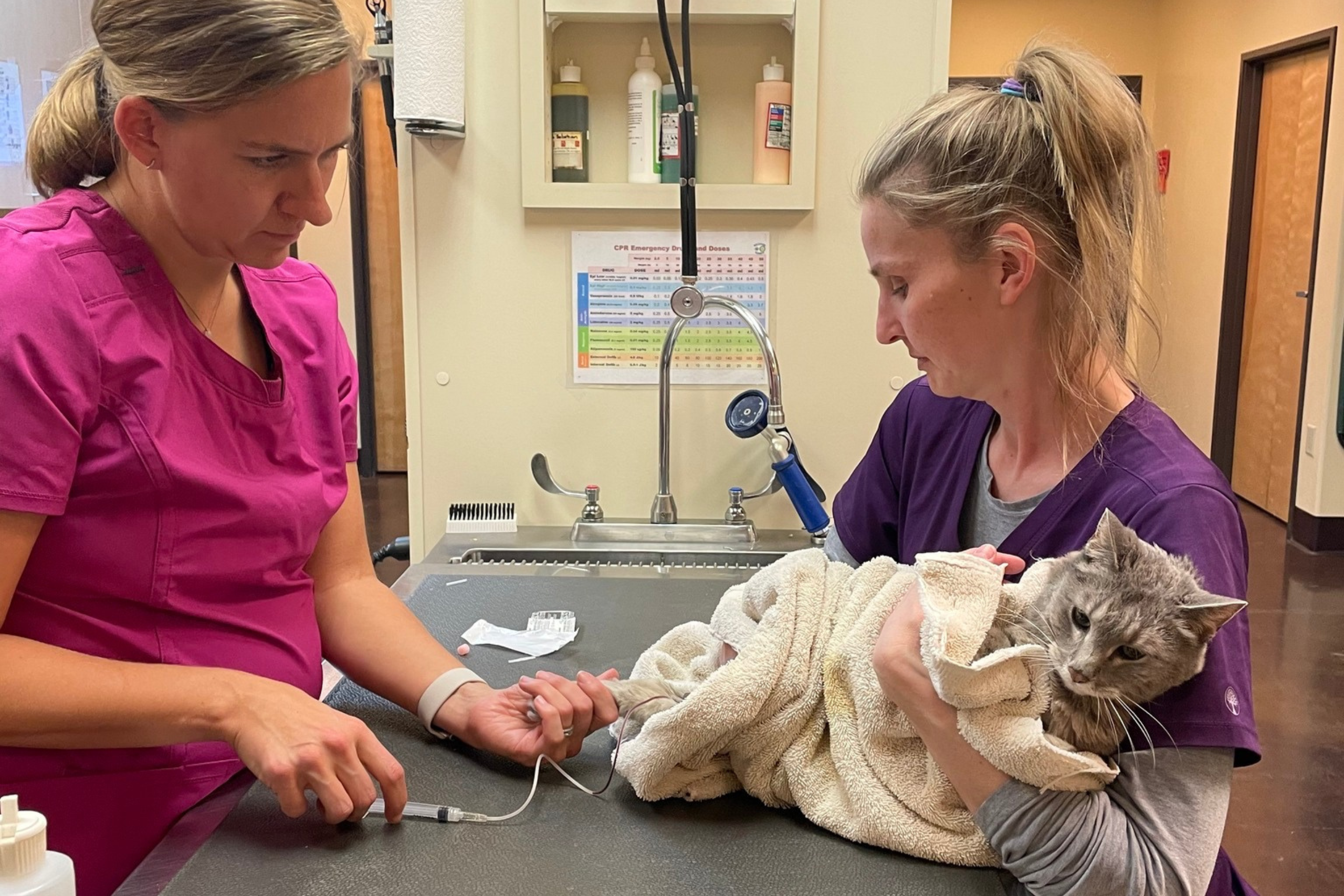
Sedated Procedures
Not all injuries or procedures require a general anesthetic. Some minor injuries or conditions require that your pet remain at the hospital for a few hours. First the pet is given a sedative drug that will allow the doctor to perform the procedure, treatments are performed, a reversal agent is then administered and once the pet is recovered from the sedation, they are ready to be discharged into your care. Examples of this include minor lacerations and wounds, broken toenails, and occasionally simple mass removals. Sometimes we do have to sedate pets that won’t allow examination due to temperament or pain. Severe ear infections and eye injuries are examples of these situations.
Recovery from sedation is typically faster and has less potential for complications but your pet will still need your support once you get them home from the hospital.
1. Medications: all medications are prescribed with your pet’s health and comfort in mind. Please give all medications as directed: pain medication, antibiotics, topical medication, etc.
2. Have a quiet, warm and comfortable place for them to recover. They may be tired and quiet for 24 hours; this is actually preferable as calm, quiet pets will heal faster. Although we do reverse some of the sedation, other drugs will remain in their system for a few hours so they may seem more awake when you pick them up and then get very sleepy with you get home.
3. Typically, it is ok to feed your pet after a sedated procedure but be sure to follow all the discharge instructions you are sent home with. If your pet doesn’t want to eat once they get home from the hospital that is OK. They should be drinking water and want to eat the next day.
4. Animals are different from humans in that they may chew at sutures or surgical incisions. They don’t understand what can happen and why they shouldn’t do that. This is where the cone of shame comes in. Love it, use it and it will aid in quick healing. Pets do not love e-collars but they usually get used to them. Only take the collar off when you can closely watch them. DO NOT leave it off at night! Ask us about the different types of collars we carry in the hospital so you can make the best choice for you and your pet. If an e-collar will not keep your pet from getting to the surgical site our team can make other suggestions (a shirt, sometimes a pair of shorts, socks, etc) that will serve the same purpose. Also keep any of your other pets from licking at your pet’s incisions.
5. Follow up care. Your pet may have sutures or staples that need to be removed or your veterinarian may want to evaluate your pet sometime after the procedure to be sure they are recovering appropriately. Please schedule any recommended follow-up appointments before you take your pet home, that way you won’t forget.
More serious complications or side effects may occur post procedure that require a phone call or a recheck appointment. If you notice any of these signs, please contact us immediately 970-963-2371 or visit Valley Emergency Pet Care if it is after hours.
– Extreme lethargy or listlessness (especially after the first 24 hours)
– Excessive redness or irritation around the suture line
– Excessive or increased pain
– Swelling or a lump around the incision site
– Discharge from the site
– Vomiting, diarrhea, inappetence or blood in the stool
– If your pet is actively straining but unable to have a bowel movement
– Broken sutures or odor from the wound
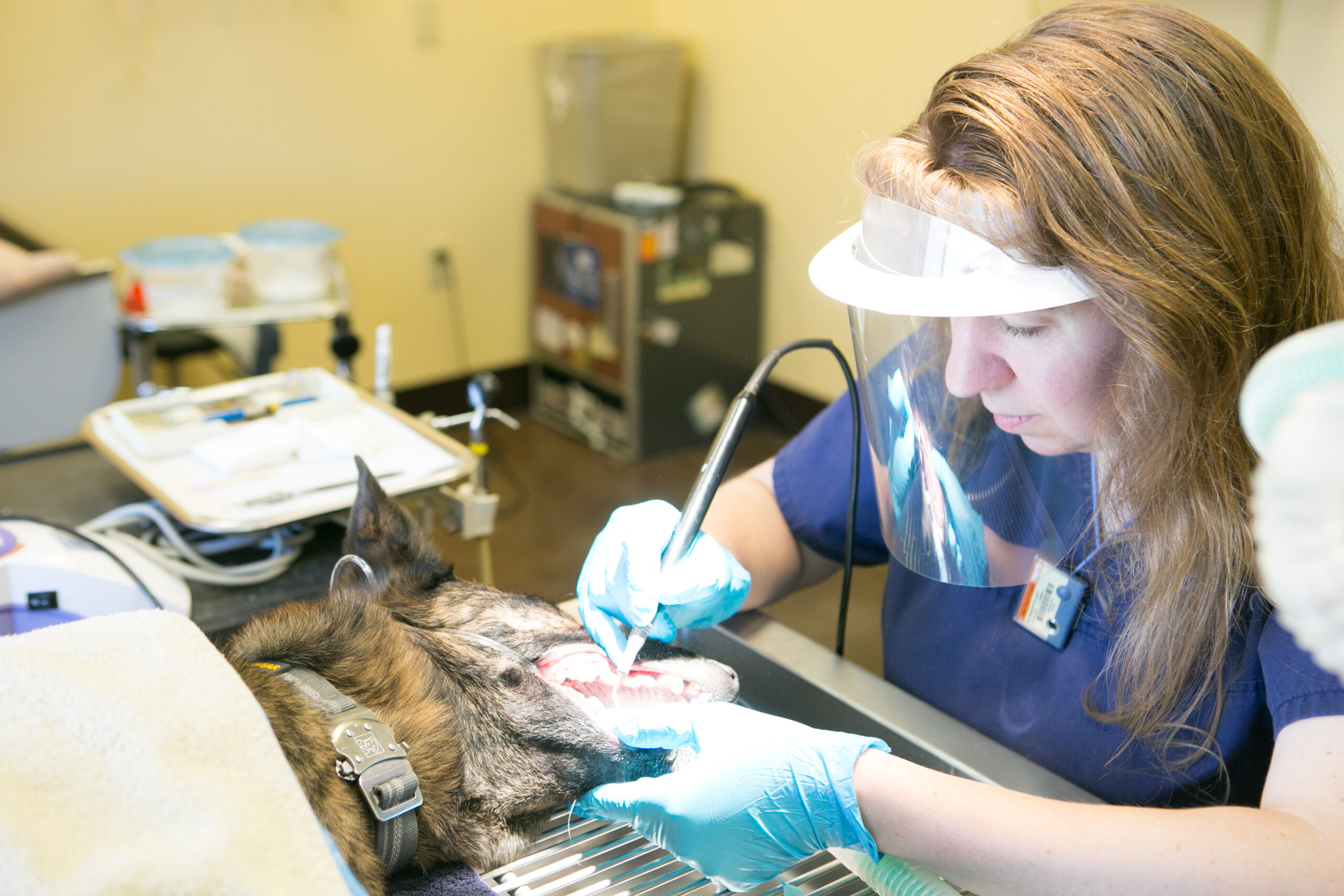
Dental Procedures
Although it would be wonderful to clean and assess your pets teeth with them awake, for us to properly address your pets oral health they must be completely anesthetized and spend a day with us.
Generally, there are few complications following preventative dental cleanings but there are still things you must do for your pet after the procedure.
1. Have a quiet, warm and comfortable place ready for them to recover. Expect them to be tired and quiet for 24 hours as the effects of the anesthesia wear off. Keep cats inside for at least 24 hours.
2. If your pet doesn’t want to eat once they get home from the hospital that is OK. They should be drinking water and want to eat the next day.
3. A mild cough is also normal following anesthesia; this is due to irritation from the endotracheal (breathing) tube used to deliver oxygen and gas anesthetic, as well as protect the airway, during the procedure. This is usually a dry, nonproductive cough that should decrease over time and dissipate within 3-4 days. If, however, a cough does not resolve within 3-4 days, is increasing in frequency or severity, or if it begins to cause any difficulty breathing, this is not normal and your pet should be examined as soon as possible to determine any other issue which could be occurring
During dental procedures we often find conditions that must be addressed. This may include broken or infected teeth that must be removed, oral masses, or gingival abnormalities. While your pet is under anesthesia the doctor will determine treatment options and call you to discuss recommendations and form a treatment plan. If the doctor cannot reach you, we will end theprocedure and start the recovery process. We can then discuss future treatment options with you when we discharge your pet. If your pet does undergo oral surgery the recovery process may be more extensive and there are a few things you need to know.
1. Blood-tinged saliva may be present for a few days post procedure.
2. Sutures will dissolve over the next 3-6 weeks. No suture removal is necessary.
3. Softened food is recommended for 10-14 days post procedure. If your pet is used to a kibble diet, you do not need to make a drastic diet change and buy canned food. Soaking the kibble with water for 20 minutes before feeding so that it is soft like bread will work just fine.
4. No oral play for the 10 days of recovery so no toys, no rawhides or bones and no rough housing with canine buddies.
5. Leash walks for exercise but no running, hiking or dog parks during recovery; more strenuous activity can increase your pet’s blood pressure which can affect healing and cause sutures to fail.
6. Follow up care. Depending on the level of oral surgery, your pet’s veterinarian may want to see them for a courtesy recheck to make sure everything has healed. Please schedule any recommended follow-up appointments before you take your pet home, that way you won’t forget.
More serious complications or side effects may occur post procedure that require a phone call or a recheck appointment. If you notice any of these signs, please contact us immediately 970-963-2371 or visit Valley Emergency Pet Care if it is after hours.
– Extreme lethargy or listlessness (especially after the first 24 hours)
– Vomiting, diarrhea, inappetence
– If your pet is actively straining but unable to have a bowel movement
– Excessive bleeding from the mouth
– Discharge or odor from the mouth
Serving the pets of the Roaring Fork Valley since 1970.
At Alpine Animal Hospital, we treat your pets like the valued family members they are.

Contact Info
Phone: 970-963-2371 (Call or Text)
Fax: 970-963-2372
Email: customerservice@alpinevet.co

Hours
Mon - Fri: 8:00 AM - 5:00 PM
(closed 12:30-1:30pm for lunch)
Sat & Sun: Closed
After that (and on weekends) we transfer calls to Valley Emergency Pet Care 970-927-5066 or Grand Valley Emergency Center in Clifton 970-255-1911

Location
17776 Highway 82
Carbondale, CO 81623
Click here for directions.
Have a question?
Our team is here to help.
Get Directions
We look forward to seeing you soon!

Book an appointment online!
Save time and book your next appointment with Alpine Animal Hospital online. Simply complete our online form in minutes. We look forward to seeing you soon!
